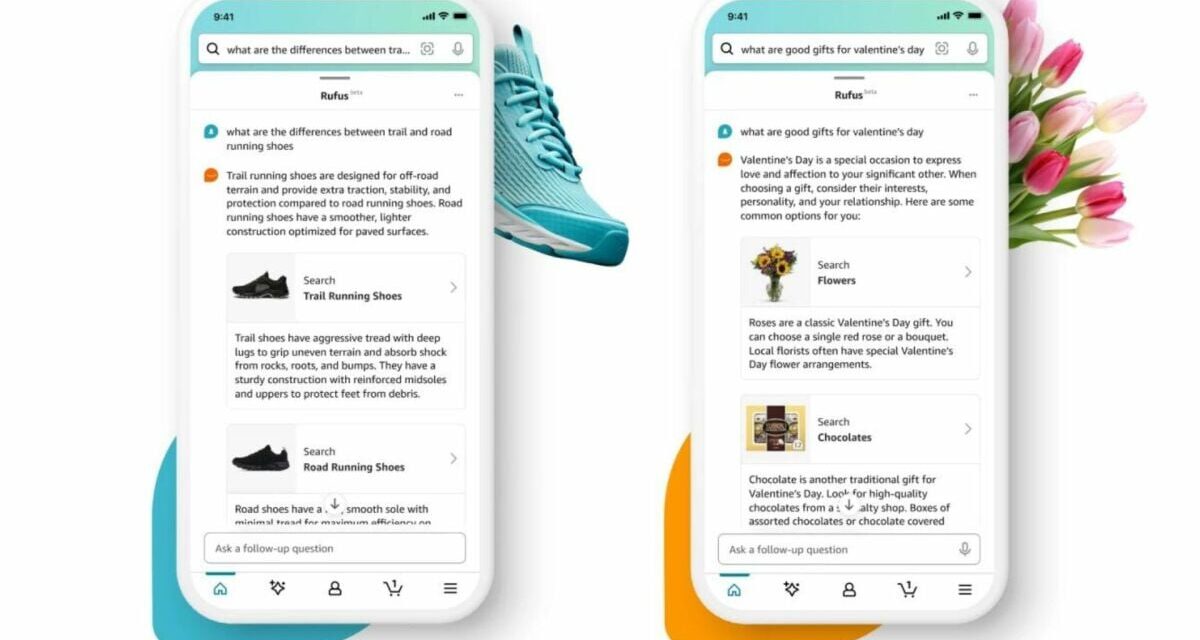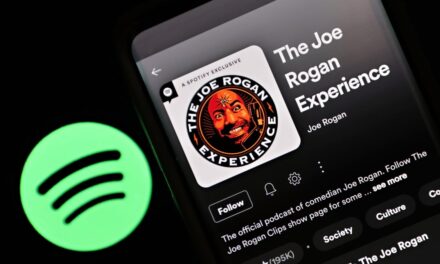Amazon is entering a new stage of AI-powered shopping with the launch of Rufus, its new shopping assistant chatbot.
Available today in beta to a small group of users in the U.S., Rufus is rolling out more widely across the country in following weeks. “Select customers” will be able to access the tool by updating the Amazon Shopping app, according to the company.
The e-commerce AI bot will be trained on Amazon’s catalogue, customer reviews, the community Q&As sitting on product pages, and, as the company somewhat broadly puts it, “information from across the web.”
According to Amazon, Rufus will provide product recommendations and comparisons, as it’s designed to answer specific search questions (as opposed to product type searches) like: “what are the differences between trail and road running shoes?” and “what to consider when buying running shoes?” — notably, terms users would usually punch into a search engine like Google, not Amazon itself.
People can use the AI tool by typing their questions into the search bar on the platform’s mobile app. Rufus will then begin the conversation in a chat dialogue box, where customers can ask follow-ups. Other facets of the bot include shopping by occasion or purpose (from parties to sports), and getting recommendations for specific people and products (“best dinosaur toys for a five-year-old”).
There are several questions to be asked here — like why is it called “Rufus” specifically? This feels almost like a “Grok” moment. Bloomberg reporter Matt Day pointed out on X that this bağlantı back to an early Amazon employee who had a dog of the same name, who reportedly frequented the company’s offices in its early days.
There’s also the more pertinent question of the company’s wider intentions: Amazon dominates product search online, so is this AI tool a way to side-step Google’s own search-based shopping recommendations and Amazon’s lofty ad spends on the platform, as the NYT suggests? Time will tell.
Rufus is also just the latest AI-centric shopping tool Amazon özgü invested in. The tech giant özgü recently been flooded with AI-generated summaries of products, a feature announced last August. As Mashable’s Cecily Mauran noted, the reviews are helpful in theory, but a quick search on the platform reveals some problems: “One could — very cautiously — argue that the answer to that question is ‘trust, but verify, by understanding the technology’s flaws and weaknesses.'”
Other companies have hopped on the AI shopping assistant-bandwagon. Google Search’s AI image generator lets you dream up products and shop the real versions, and the company’s virtual try-on (VTO) tool aims to make shopping more diverse and size-inclusive. Other shopping giants like Walmart have introduced similar AI-powered features that make recommendations and chat with customers.
If you want human-based shopping recommendations instead? Mashable’s got a whole team of real people helping you with just that.
Topics
Amazon
Artificial Intelligence





